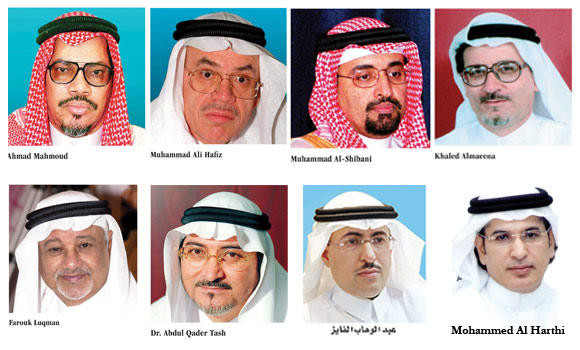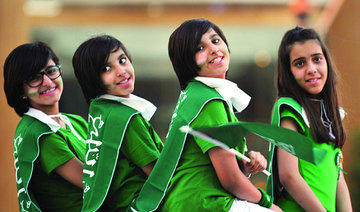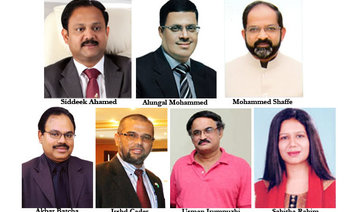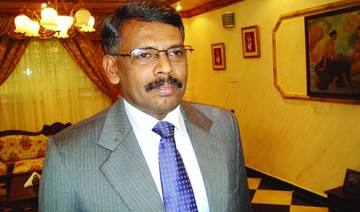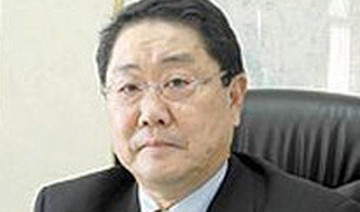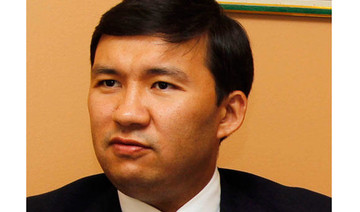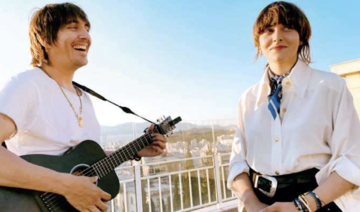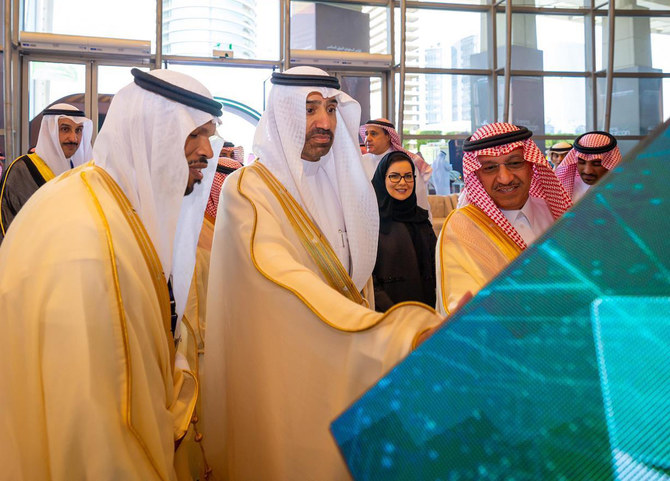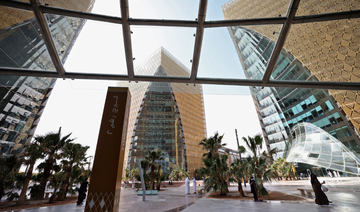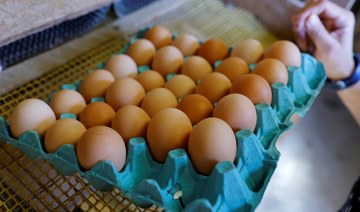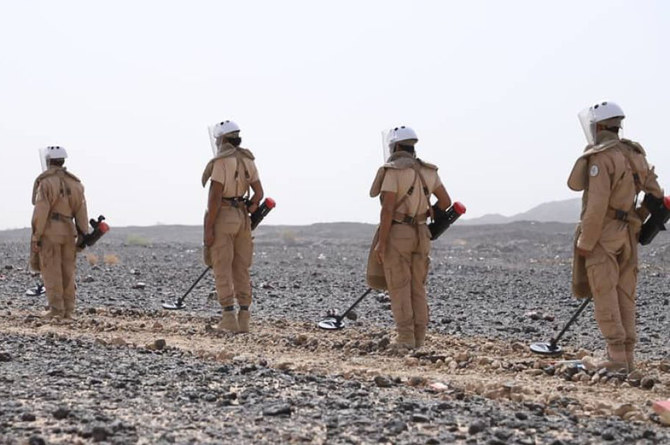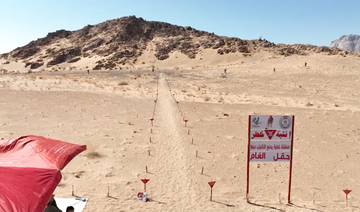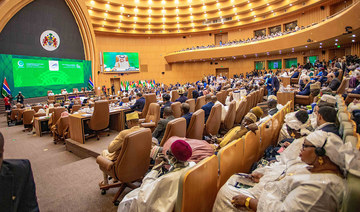Arab News occupies an enviable position in the publishing world amid a worldwide trend of print editions of daily newspapers focusing more on online editions.
The print edition, Saudi Arabia’s first English newspaper and Saudi Research and Publishing Company’s (SRPC) flagship, has not only maintained its growth in terms of circulation, readership and advertisements but also its simultaneous digital versions have been gaining popularity across the world.
More recently, Editor in Chief Mohammed Fahad Al-Harthi brought in a new refreshing change in the newspaper, both in its news coverage, views of columnists and appeal to its vast readership.
The other reasons for the unprecedented success of Arab News are two-fold — its consistent adaptability to incorporate changes as the engine of growth and its capability to introduce evolving technologies, and secondly publishing unbiased stories in keeping with the dictum ‘News is sacred.’
Arab News marked its 39th anniversary on Sunday (April 20). It was on April 20, 1975, when the first issue hit the newspaper stands in Jeddah and elsewhere in Saudi Arabia.
Your favorite daily, which is the leading newspaper in the Middle East, has had a checkered history.
Way back, some time before 1975, Hafiz brothers — Hisham and Muhammad — were on a pilgrimage to Makkah. In the course of their journey, they came across a number of international pilgrims.
During their casual discussion, they felt Saudi Arabia, where pilgrims from all over the world converge for their annual Haj and around-the-year Umrah pilgrimages, needed an English newspaper to keep abreast of world happenings.
They lost no time in taking a firm decision and started working on the modalities of printing, production and distribution. Arab News, the first daily from the stable of Saudi Research and Publication was thus born in a garage in Binladin building.
The pilot project began with an eight-page tabloid publication with 3,000 copies, each priced at SR1.
Being a prestigious project dear to the two brothers, they themselves would carry the newspaper loads and sell them to the public, and distribute them to various supermarkets, grocery outlets and corner shops.
The initial slow response from sales did not deter them and the brothers started devoting all their time with determination to make the flagship not only viable but also a success.
They started hiring Arab and international journalists, photographers, translators, engineers, technicians and cartoonists to manage their editorial, printing and production departments.
Expatriate journalists from the US, England, Egypt, Lebanon, Jordan, Yemen, Pakistan and India were hired to join their Saudi and other Arab counterparts.
The daily’s increasing readership and popularity was reflected in the Kingdom’s first English language newspaper becoming a broadsheet daily.
What really prompted this was the influx of millions of expatriates over a period of time in the wake of the economic boom of the late 1970s.
Its offices moved from Sharafiah to its new, purpose-built multistoried building in Faisaliah district, behind the Ministry of Education Stadium, off Madinah Road, in early 1983.
The ground floor of the landmark building housed the newspaper’s printing machines and the upper three floors its admin and editorial offices.
The subsequent years marked editors, proofreaders and admin staff coming from some other countries, including Bangladesh, Sudan and Syria. Overseas correspondents were appointed in major countries, including the United States, the UK, Pakistan and India. Like editors, a battery of reporters and translators formed an important section of the newspaper, which had to depend on translations from Arabic content circulated by Saudi Press Agency and Arabic media channels.
Editorial and printing technology also advanced with the passage of time. The newspaper started incorporating changes as advanced technologies became available.
For reporters, typewriters gave place to electrical ones, and subsequently to word processors and to the present Macintosh technology.
Today, reporters with their laptops, iPads and smartphones can type and forward their stories from anywhere in the world to catch the newspaper’s deadline.
On the printing side, the traditional hand composing, linotype composing and galley-proof system graduated to a cut-and-paste format, evolving through different stages from hot-metal technology to its present form — desktop publishing.
Today, reports, articles and features come online, thanks to the Internet revolution, which are selected, downloaded and edited, and finally pages made on computer screens by editors.
In order to keep pace with worldwide changes, Arab News took the first opportunity to promote and develop arabnews.com — which has now become the most popular online address with maximum hits in this part of the world.
The daily has become the window for the outside world for news and views of all that is happening within the Kingdom, the rest of the Middle East-Gulf region and elsewhere in the world.
Today, Arab News has expanded its presence on social media sites, including — Facebook, Instagram, Twitter, Google Plus and YouTube — with growing popularity.
The contribution of various editors in chief and managing editors as well as the editorial and technical staff has immensely enriched the newspaper’s appeal, especially from the late 1970s to the present day.
Of course, the newspaper’s editors in chief have played a pivotal role in shaping what it is today.
They included Ahmad Mahmoud, Muhammad Ali Hafiz, Zuhair Al-Faqeeh, Muhammad Al-Shibani, Khaled Almaeena, Farouk Luqman, Abdul Qader Tash and Abdulwahab Al-Faiz.
Mohammed Fahad Al-Harthi is the present incumbent to the top position.
Mahmoud Kahil’s political cartoons that featured the editorial pages of the newspaper for several years until his death were not only appreciated but became an attraction for the readers.
In fact, cartoon loving readers would turn to the editorial page first to see the cartoon of the day and then proceed to the other pages. “The way he made fun of political leaders of the world through sketches without any words spoke volumes for his cartooning ability,” an avid reader said.
Each editor in chief has done his best to bring about changes in keeping with the emerging trends.
They introduced new thought-provoking columns and columnists, aside from reports and articles that appeal to the vast readership.
Islam in perspective, published every Friday, has been a popular page for both Muslims and non-Muslims.
In fact, some readers have gone on record to say that they maintain a collection of these pages to educate themselves and others about Islam.
Saudi Top 100, a benchmark for the Kingdom’s top 100 companies, became an annual feature that corporate houses, businessmen and readers in general looked forward to year after year.
The vast, comprehensive coverage of business and economy — of news, views and interviews — has appealed to the corporate world in particular and the readers in general.
Saudi Arabia National Day on Sept. 23 is being celebrated by Arab News every year by publishing a dedicated supplement featuring the Kingdom’s increasing buoyancy in the economy, its economic and social projects, as well as the expanding arrangements in Makkah and Madinah for the ever-growing pilgrim numbers from all over the world.
Medical, educational, tourism, sports, shopping and other activities are also prominently covered in the newspaper.
An exclusive feature introduced by Arab News, which is still being followed on popular demand, is the dedication of pages to news from the Kingdom, the Middle East, International, science and technology, lifestyle and local and world sports. International pages lay emphasis on the news and features of interest to expatriates who hail from the US and Europe, India and Sri Lanka, Pakistan and Bangladesh, Africa and Philippines.
With Saudi Arabia hosting a large expatriate community, their national holidays are marked by special supplements published in Arab News. Expatriate activities, including their academic, sports and cultural events find prominent place in the daily.
International diplomats have commended Arab News as it gives space for their embassy and consular activities.
They have acknowledged the daily’s special efforts in providing exclusive and extensive coverage of the tours of world dignitaries, and commercial and trade missions, with their meetings at the highest level in Riyadh and at the chambers of commerce and industry Kingdomwide.
Both at official and business levels, Saudi leaders have equally been appreciating the role of Arab News in promoting the Kingdom’s interests locally, regionally and internationally.
Today, under the stewardship of Editor in Chief Mohammed Fahad Al-Harthi, Arab News is marching ahead with its successful track record in terms of vast readership, and increasing advertisements and subscription.
Since its inception, Arab News has been the corporate world’s first choice in the region for announcing news and financial results as much as for placing its national and international ads.
With English being introduced as the second language for children at school level, the students find Arab News useful to update their world news as well as brush up their knowledge of English language. “In fact, Arab News is our first choice among English newspapers from the region.” This statement from a university student is echoed by the entire community of Saudi students.
Expatriates residing in the Kingdom say they are blessed to be in the Kingdom because it is the cradle of Islam, the land of the two holy mosques and also because of Arab News for its excellent coverage and presentation of unbiased news.
“The kind of coverage of international news in Arab News has been unique and highly informative for me. Back home in my country, the local newspapers hardly gave space to international news,” says an expatriate, who is a resident of the Kingdom for as many years as of Arab News.
The success of Arab News has made SRPC, with its 29 publications, the biggest publishing house in the Arab world.
Today, with its more than 75,000 copies and hundreds of thousands of online readers, the newspaper has carved out a niche for itself in the publishing world.
The SRPC boasts more than 15 dailies and magazines, all in Arabic barring two dailies — Urdu News that caters to the residents hailing from Pakistan and India, and Malayalam News for the residents coming from the southern Indian state of Kerala.
For SRPC, however, Arab News occupies the pride of place.


